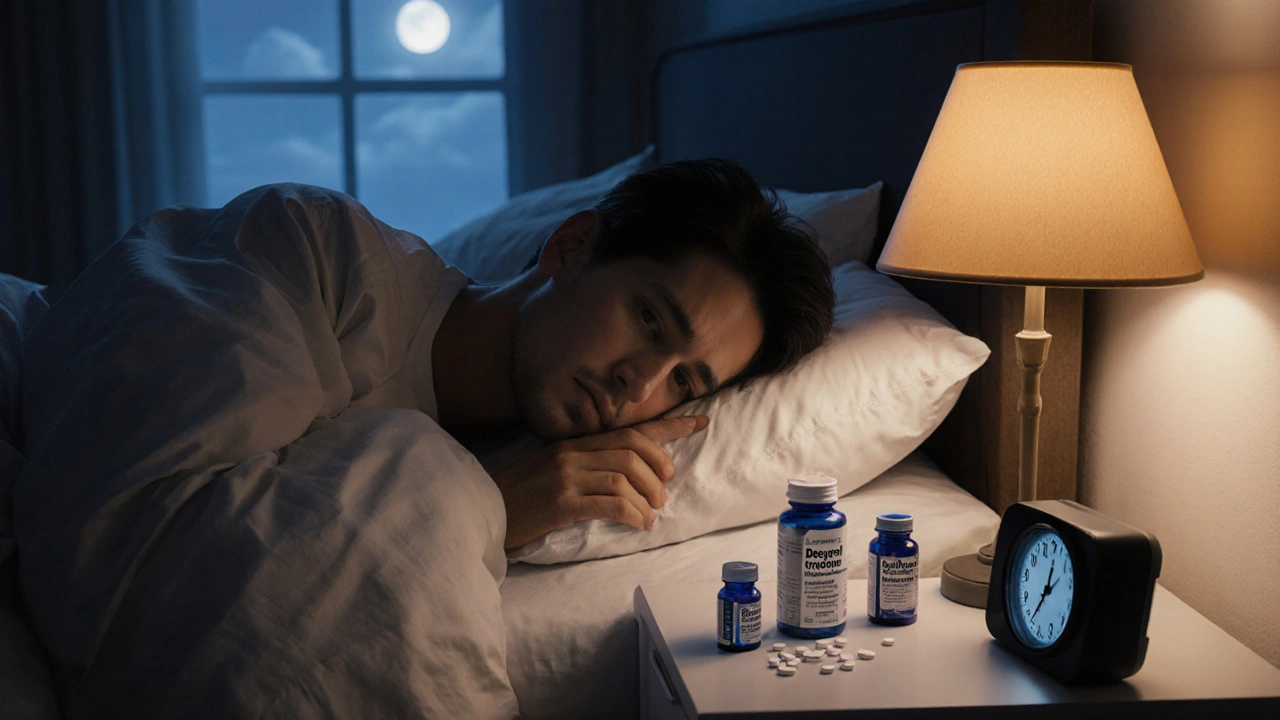Best Alternative to Desyrel – Top Antidepressant Options Explained
When looking for Desyrel alternatives, non‑sedating antidepressants that act on serotonin pathways, you’re really asking “what’s the best alternative to Desyrel?” The answer depends on how you weigh effectiveness, side‑effects, and how quickly the drug kicks in. Many people switch because they want less daytime drowsiness, lower sexual side‑effects, or a medication that fits better with other health issues.
One of the most common switches is to an SSRI. Drugs like Celexa, a selective serotonin reuptake inhibitor used for depression and anxiety often top the list because they have a well‑known safety profile and don’t usually cause the heavy sedation Desyrel can bring. Zoloft, another SSRI that offers a slightly different side‑effect balance is a close runner‑up, especially for people who need a boost in energy without the sleepiness.
How to Choose the Right Option
Choosing a replacement isn’t just about the drug name; it’s about matching the medication’s attributes to your lifestyle. Effectiveness is measured by symptom relief within a few weeks, while tolerability looks at side‑effects like nausea, insomnia, or sexual dysfunction. Cost matters too—generic versions of Celexa and Zoloft are widely available and often cheaper than brand‑name Desyrel. Finally, you should consider drug interactions; many SSRIs have fewer clashes with blood pressure meds or painkillers than trazodone does.
Another angle is the speed of onset. Desyrel can help right away because it has sedating properties, but that same trait can be a drawback during the day. SSRIs typically take 2‑4 weeks to reach full effect, but they provide a steadier mood lift without the crash. If you need a fast‑acting bridge, a short‑term low‑dose of Desyrel might still be part of the plan, followed by a switch to an SSRI for long‑term maintenance.
What about those who can’t tolerate SSRIs? Some clinicians point to newer agents like bupropion, an atypical antidepressant that works on dopamine and norepinephrine. It’s not an SSRI, so it sidesteps many of the sexual side‑effects, but it can increase anxiety in a small subset of patients. When you map the options, you see a clear semantic chain: Desyrel alternatives encompass SSRIs, atypical agents, and sometimes low‑dose trazodone for bridging. This chain helps you visualize how each class relates to the core goal of mood improvement.
Insurance coverage also pushes the decision. Many health plans treat generic SSRIs as first‑line, requiring prior authorization for newer drugs. That administrative hurdle can add weeks to treatment, so knowing the insurance landscape early saves frustration. Checking the pharmacy’s price list, using discount cards, or ordering through reputable online pharmacies are practical steps to keep costs down.
Lastly, personal preference matters. Some people value a medication they can take once a day without worrying about sedation. Others prefer a pill that helps them fall asleep if insomnia is a big issue. Talking openly with your prescriber about sleep patterns, daily schedule, and any existing meds creates a partnership that leads to the most suitable best alternative to Desyrel for you.
Below you’ll find a curated collection of articles that dive deeper into each of these options, compare side‑effect profiles, and offer buying guides for cheap generics. Use the insights to decide which path fits your health goals best.
A side‑by‑side look at Desyrel (trazodone) versus common alternatives, featuring a comparison table, pros and cons, decision guide, and FAQs for patients choosing a sleep or mood medication.
View More

